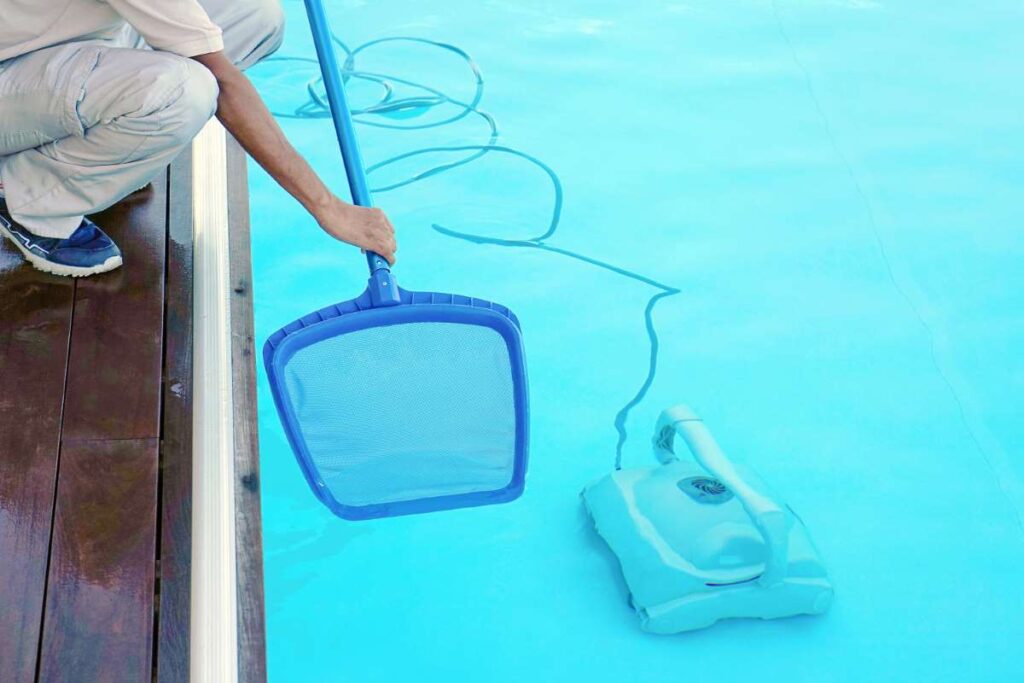Discover how to build a powerful referral engine specifically tailored for the pool industry. Learn strategies that can transform your business.
How to Create a Referral Engine in the Pool Industry
In today’s competitive landscape, cultivating a referral engine is essential for businesses in the pool industry. A robust referral system not only brings in new customers but also enhances the overall credibility of your pool service business. This blog post will explore the importance of referrals, provide actionable strategies for creating a referral engine, and share insights on nurturing a network that consistently generates leads. By the end of this article, you will have a comprehensive understanding of how to leverage referrals to grow your pool service business sustainably.
The pool maintenance industry is flourishing, with a growing demand for reliable pool services. As competition increases, relying solely on traditional marketing strategies might not be enough to set your business apart. Leveraging referrals can provide a significant edge, transforming satisfied customers into your best marketing tools. This post will delve into proven techniques to create a referral engine tailored to the pool industry, focusing on practical applications that you can implement immediately.
The Importance of Referrals in the Pool Industry
Referrals are often viewed as the gold standard in marketing. According to research, customers acquired through referrals are more likely to convert and remain loyal compared to those obtained through other channels. In the pool industry, where trust and reputation are paramount, referrals can play a critical role in establishing your business as a leader in the community.
Establishing a system to generate referrals can have a profound impact on your business growth. For instance, a satisfied customer who shares their positive experience with friends, family, or neighbors can lead to new contracts without the need for expensive advertising campaigns. Furthermore, referrals often lead to clients with higher lifetime value, as they come in with a sense of trust already established, thanks to the recommendation from someone they know.
Understanding the significance of referrals sets the foundation for creating a referral engine. It is important to note that referrals should not be left to chance; instead, they require a structured strategy that actively encourages your existing clients to advocate for your services.
Building a Referral Program
Creating a successful referral program begins with a plan that incentivizes your customers to refer others to your pool service business. Your program should clearly outline the benefits of referring new clients. This might include discounts on future services, cash rewards, or even free services for successful referrals.
For instance, consider implementing a tiered rewards system where clients earn more significant rewards as they refer more people. This not only incentivizes them to refer but also encourages them to continue doing so over time. It is crucial to communicate the details of your referral program effectively, using email newsletters, social media posts, and direct communication with clients.
Additionally, make the referral process simple and hassle-free. Provide your clients with easy-to-use tools to share your services, such as referral cards or unique referral links that track their recommendations. The easier you make it for clients to refer your services, the more referrals you are likely to receive.
Nurturing Relationships with Existing Clients
As the foundation of your referral engine, nurturing relationships with existing clients is paramount. Regular communication helps keep your services top-of-mind and fosters a sense of community around your brand. Use tools like email marketing to send out informative and engaging content about pool maintenance, tips for keeping pools clean, and updates on your services.
Engagement goes beyond just sending promotional materials. Consider organizing customer appreciation events, such as pool parties or educational workshops on pool maintenance. These events not only provide valuable information but also create a platform for customers to interact with your brand and with each other, strengthening their ties to your business.
Client testimonials can also serve as a powerful marketing tool. Encourage satisfied customers to share their experiences online and provide them with platforms to do so, such as Google reviews or testimonials on your website. This content not only boosts your credibility but also acts as social proof for prospective clients.
Leveraging Social Media for Referrals
Social media platforms are powerful tools for generating referrals, particularly in visually-driven industries like pool maintenance. Use platforms such as Instagram and Facebook to showcase your work, share customer testimonials, and promote your referral program. Engage with your audience by asking them to share their pool photos or experiences with your services.
Hashtags related to your local area and the pool industry can help broaden your reach. Encourage your clients to tag your business in their posts, thus exposing your services to new potential customers within their network. Running contests or giveaways on social media can also incentivize shares and referrals.
Additionally, consider collaborating with local influencers or businesses in the pool industry. Partnerships can help you tap into new networks and generate referrals. For instance, working with local real estate agents can create a mutually beneficial relationship, where they refer clients needing pool maintenance services while you promote their services as well.
Measuring the Success of Your Referral Engine
To ensure the effectiveness of your referral engine, it’s important to implement metrics to measure its success. Tracking key performance indicators (KPIs) such as the number of referrals generated, conversion rates, and customer retention can provide valuable insights into what is working and what needs improvement.
Using tools like Google Analytics and CRM software can help you analyze the data and identify trends over time. For example, if you notice that referrals from a particular campaign result in higher conversion rates, you may want to double down on that strategy. Regularly reviewing your referral program and making necessary adjustments can help keep it effective and aligned with your business goals.
Additionally, gather feedback from your clients about the referral process. Understanding their experiences can illuminate areas for improvement, ensuring that your referral engine is always evolving and adapting to meet your clients’ needs.
Creating a Culture of Referrals
Establishing a culture of referrals within your business can significantly enhance your referral engine’s effectiveness. This culture begins with your team. Educate your employees about the importance of referrals and how they can contribute to generating leads. Offer incentives for employees who bring in referrals as well, creating a team-oriented approach to client acquisition.
Encourage your team to share their own experiences working with clients and highlight positive interactions that may lead to referrals. Team meetings can be an excellent platform for sharing success stories and motivating each other to seek referrals actively.
Additionally, consider hosting regular training sessions on how to ask for referrals and building relationships with clients. The more equipped your team feels, the more likely they are to foster a referral-focused mindset.
Adapting to Trends in the Pool Industry
The pool industry is constantly evolving, with new technologies and trends impacting how businesses operate. Staying informed about industry trends can provide opportunities to position your referral program more effectively. For example, if there is a growing interest in eco-friendly pool maintenance products, your referral program could highlight these services to attract environmentally conscious customers.
Incorporating modern technology into your referral engine can also enhance its effectiveness. For instance, using email automation tools can help streamline the referral process, sending follow-up reminders to customers about your referral program or thanking them for their referrals.
Additionally, consider using customer relationship management (CRM) systems to track referrals and manage the referral process more efficiently. By leveraging technology, you can ensure that your referral engine is not only effective but also scalable as your business grows.
Conclusion
Creating a referral engine in the pool industry requires a thoughtful approach that prioritizes customer relationships, effective communication, and strategic marketing. By implementing a structured referral program, nurturing existing client relationships, and leveraging social media, you can generate a steady stream of new clients for your business.
The significance of referrals cannot be overstated; they are essential for establishing trust and credibility in the pool service market. As you cultivate a culture of referrals and adapt to industry trends, your business will not only thrive but also sustain growth in the long term.
To start building your referral engine today, consider exploring [Pool Routes for Sale](https://pool-routes-for-sale.com/), where you can learn about immediate income opportunities and established customer bases that can enhance your pool service business’s growth. Contact us today to find out more!



